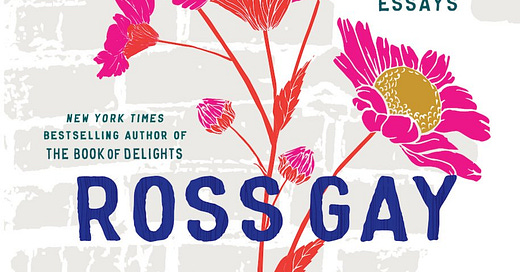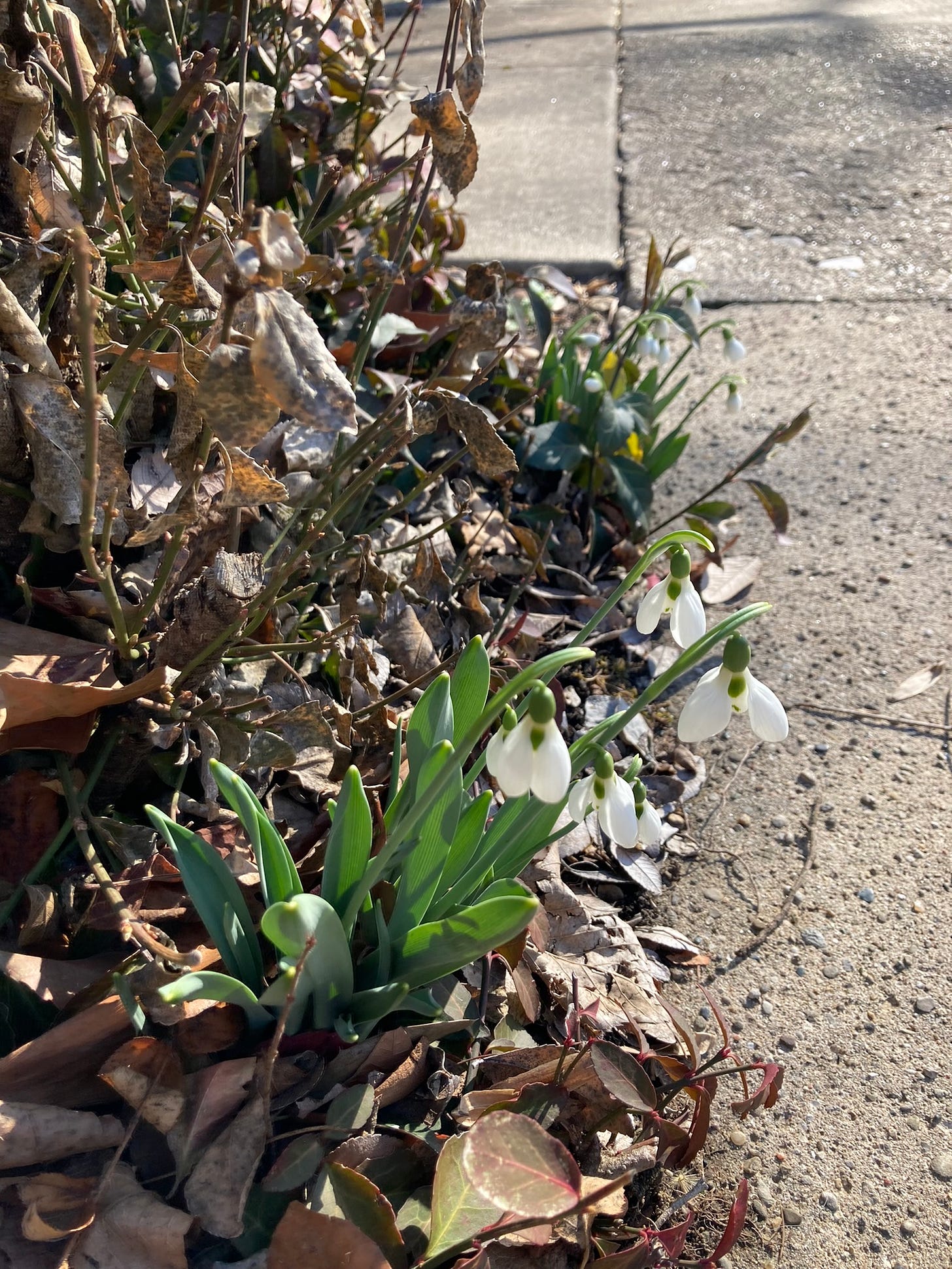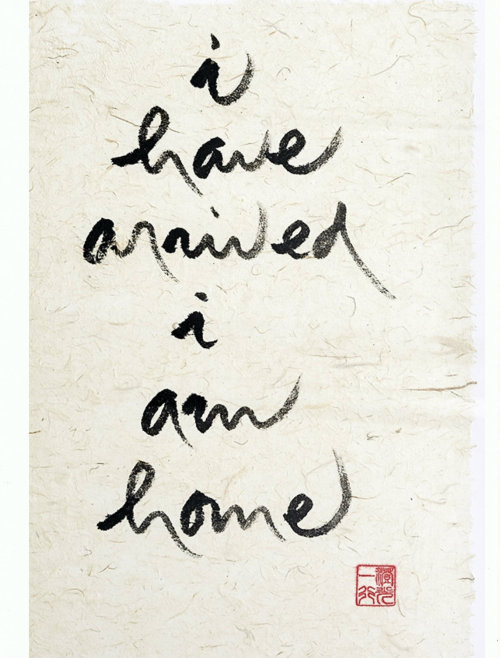Gentle Conversation with Robyn Ryle
Beloved community, great teachers & the delight of saying no
A very warm welcome to my fourth gentle conversation with my new Substack friend Robyn of You Think Too Much. As someone with a non-binary spouse, I appreciate Robyn’s work around gender very much. Alongside gender we also discuss grace, boundaries, inequality, our role models, unexpected wisdom, and the idea that ‘everyone is doing the best they can most of the time’. Enjoy!
Hi Robyn - my almost-namesake - thank you for agreeing to join me. As you know, I'm a psychotherapist and I run a Buddhist temple in the UK with my spouse Kaspa (they/them). Recently I've been enjoying experimenting with the Tarot, and obsessing slightly over my Substack stats, although I think I've turned a corner with that! Could you start by saying something about who you are, and tell me about your current preoccupations?
Hello, Satya, with the lovely name (not that I'm biased or anything). So happy to be in this conversation and to have connected across the virtual world. I'm a writer and a professor of sociology and gender studies. I teach at a small college in southern Indiana. I've written two nonfiction books about gender. I live in an almost 200-year old house (not a big deal in the UK, but rarer here in the U.S.) with my partner, Jeff, and two cats.
It's been a sort of rough spring here in southern Indiana--a warming trend that coaxed all the trees to bloom, followed by six mornings of hard freeze. So I'm thinking a lot about resiliency, how the trees will manage to make it through one way or the other and how my worrying about them doesn't really help them or me. I'm also reading Amanda Ripley's book, High Conflict, and thinking about how we move forward in my own community and the larger world after these years of such intense anger and polarization. I'm thinking about how we re-build community. Community is kind of my obsession of my obsession.
Reading that, I already have lots of questions! But I shall limit myself to one to get us started... where did your interest in gender studies emerge from, and do you see any relationship between that area of your work and your thoughts about conflict and community? Looks like I cheated already with a two part question…
Like a lot of things in my life, my interest in gender studies is the result of half intention and half stumbling around in the dark. I did a women's studies concentration back in college in the nineties, when it was very uncool to call yourself a feminist. I was interested in all types of inequality as a sociology major and as a naïve white woman living in the deep South of Mississippi, seeing the legacy of continuing segregation thirty years after the civil rights movement. I felt then and I still believe now that to call yourself a feminist means that you must be invested in working against all forms of inequality. You can't pick and choose.
My interest in gender really took off when I started teaching a sociology of gender course. I began to get into the research on how not just gender, but sex categories, too, are socially constructed. That our ideas that sex and/or gender exist as a binary are just that--ideas. Something we made up to cover a much more complicated reality. I liked trying to understand that reality myself and finding the best ways to share it with students.
As someone who studies gender and other types of inequality, I spend a lot of time thinking about their connection to community. How do we form communities that give us that sense of belonging and are also inclusive of people who are different from us? Why do certain identities seem to more easily lend themselves to that us vs. them feeling? An organization in my small town in Indiana (a fairly conservative state that recently passed a law banning gender-affirming care for transgender youth) just last week gave an award to a man who started a gathering for LGBTQ+ people in town--the Rainbow River Club. Things like that give me hope that our communities can include everyone. But my interest in gender studies and other types of inequality always sensitizes me to the dark side of community, even if I don't have all the answers.
Satya, what path led you to Buddhism and running a temple? How does your Buddhism inform your writing? I cheated with two questions, too!
Thanks - so interesting to read about your journey. I love what you say about a commitment to opposing oppression against women necessarily including oppression against all types of folk - it reminds me of Martin Luther King Jr.'s writing about the beloved community. I love that phrase. We can't leave anyone out...
So - I realise now what a difficult question mine to you was. The journey towards running this temple took 48 years! I can pull out a few significant moments - becoming interested in Buddhist writers through finding quotes online, attending a local Zen group, doing a Buddhist psychotherapy training. The most significant moment was probably encountering my particular form of Buddhism - Pure Land - which emphasises our foolish, fallible nature as human beings and which says that it is sensible to lean into the wisdom and compassion of the Buddha (/the Universe) rather than relying entirely on our own efforts. For a control-freak striver-type like me, this was exactly the medicine I needed, and still need. I began to experience the fruits of feeling acceptable just as I am, and I naturally wanted to share this wonderful gift with others. Hence, the temple!
Sometimes my Buddhism influences my writing very directly, as in my latest book 'Coming Home: Refuge in Pure Land Buddhism', and I've been writing a series of articles on Gentle Buddhism. Whether it's explicit or not, though, my Buddhist faith is at the ground of everything I do, and so influences my writing both by giving me a paradigm about the world and by offering me something to take refuge in. Writing is difficult (as you know) and so it's helpful to have faith!
My question for you - as you get older, what is the unexpected wisdom that has grown in you? About your life, relationships, community, or anything! As an example, I'm surprised to learn that truly accepting my limits and saying no to things seems to benefit others as well as me...
Oh, I just said no to something myself and it felt so delightful. So light to let go of the thing. That is a good bit of wisdom.
An unexpected wisdom I'm exploring recently is the concept of grace, which has come as something of a surprise to me. I grew up in the Christian faith, which you'd expect would mean I had some sense of what grace means. But certainly not all Christian practices lead with or particularly emphasize grace. I came across the concept recently in Richard Rohr's Falling Upward and then in Ross Gay's amazing essay collection, Inciting Joy, as well as in Brene Brown's podcast, Unlocking Us. I will admit that my understanding of grace is still imperfect, especially translating the concept into a more spiritual rather than a religious context.
But here's what I understand and what draws me to the concept--to have grace for yourself and others is, as Brene Brown talks about, to believe that everyone is doing the best they can most of the time. This doesn't mean they don't have the ability to do better or that we can't hold each other accountable when we fall short. And this is very much a belief, not an empirical description of reality. I have no idea if anyone is truly doing the best they can most of the time. But I choose to believe it about other people and about myself. That's grace. It's giving everyone the benefit of the doubt, regardless of whether they did anything to deserve it or not. We're all deserving. Or none of us are. It doesn't matter because grace isn't something you earn or deserve. It just is, like the fact that spring comes and flowers bloom. I think this is an unexpected wisdom I'll be unpacking for a very long time.
I've been thinking lately about role models for how to grow old with grace (of course) and wisdom, so who have been some of your most important spiritual teachers and role models? All answers--human or nonhuman, actual people or made-up ones--are acceptable.
[Pauses to order Ross Gay's book] Thank you so much for that description of grace - how beautiful. And it fits very nicely with the understanding I have come to as a result of using Internal Family Systems with my therapy clients and with myself. I see over and over again that all of our parts - even the most destructive ones - have a good intention for us and are doing the best they can with what they've got.
Teachers... the word itself still sets off a little tremor of resistance in me as two and a half years ago me and my spouse Kaspa left our Buddhist teacher of more than a decade. He was an incredibly important figure to me and I learnt a great deal from him - and there were parts of him that were more difficult. The 'final straw' of our leaving was actually when he badly mishandled the coming out of a non-binary colleague of ours. I guess I am still wounded from that experience, although much of that has healed over - maybe cautious is a better word - and I don't want to put anyone on that kind of pedestal again. I also wonder if I would have received even a fraction of what I did if I hadn't of put him on a pedestal. Complicated stuff and we could have a whole other conversation about that!
I can also easily make a long list of precious teachers, the vast majority of whom I meet through their writing: Richard Rohr of course! Annie Dillard, Terrance Keenan, Shinran, Anne Lamott, Brother Lawrence, Rumi, Thomas R Kelly, Earthlyn Zenju Manuel, Tricia Hersey, Ram Dass, Wendell Berry, Richard Schwartz, Martin Luther King Jr.... ooh, just writing their names feels powerful, as if I'm summoning their wonderful energies around me. I could go on and on but I'm very happy to have been asked, and to realise how graced I have been with the wisdom and compassion of all these greats.
My last question already! - maybe you could tell me something about going gently. What does this phrase mean to you, how does it play out in your life and what hopes do you have for the future?
Such a great list of teachers! Wendell Berry's stomping grounds are right across the river and as a fellow Kentuckian, I have a special place in my heart for his writing.
Oh, to go gently! I think I said in the comments on one of your posts that one thing that means to me lately is to be gentle with my emotions. I've been working on radical acceptance of my emotions, but it's taken me a long time to realize that could even be a thing. I've spent most of my life ignoring my emotions or beating myself up about the emotions I feel. The idea that all my emotions are okay and even helpful is something I still struggle with. Some of your posts about Internal Family Systems have been really helpful thinking through that.
I'm also trying to be gentler with myself about the pacing of my days. In the past, I would have said that I struggle with moving from one task to another. I finish one thing and then spend a lot of time daydreaming or dilly-dallying before I move on to the next item on my to-do list. But I've been trying to re-frame that lately. I'm not 'struggling,' so much as going at what might just be the right pace of life for me. I need down time. We all need down time. The time I spend between activities 'doing nothing' isn't a waste, but might be essential. So I'm trying to gently ask the voice of productivity inside my head to let go and allow some more directionless drifting in my days.
Last question for me! I've been thinking lately about the lessons in my life it seems to have taken me a long time to absorb. Not that there's a schedule and I'm late, but probably because they're hard lessons to learn. So I've had a poem by Thich Nhat Hanh in my head for years now--for walking meditation--and one line says, "I have arrived, I am home / In the here and the now." I've been saying this for years and feel like it's only lately that I really understand what it means to treat the here and now--the present moment--as home. So what lessons do you feel have been hard-won or taken you a long time to truly absorb?
"We all need down time" - amen! And what a great final question. I'm 48 and a half now 😂 and, like you, feel like I'm only just beginning to understand some of the basics...
I think that the BIG lesson is that all I can do is really be who I am, which includes all the things about me that could definitely use some improvement... for two reasons, I guess. The first is that if I try to be someone different (more patient than I actually am, or more generous than I actually am) then it backfires at some point and things go more badly than if I'd just been honest about my limits in the first place. The second is that sometimes it's actually helpful to the other person to see that I have limits - either it makes them feel better about their own limits, or it means we can enter into a more honest relationship, or it shows them something about themselves.
I can still hardly believe that it is possible for me to be acceptable just as I am, but that's what seems to be emerging. This, of course, brings me back to going gently - my major theme here on Substack. If I go more gently with myself, then I can also be kinder to others, even if that means setting more boundaries in the short run.
I could write a whole essay about other things I've learnt (maybe I will!) but I think our conversation has come to a close... I've so appreciated getting to know you better, Robyn, and thank you for your honest and wise sharing. Over to you for the last word.
Thanks so much for doing this, Satya! It's been such a pleasure and your questions have given me so much to think about.
⭐
Robyn is the author of two award-winning nonfiction books. She/He/They/Me, a book about gender told in the style of a choose your own adventure, was released in paperback from Sourcebooks in 2022. Throw Like a Girl Cheer Like a Boy will be available in paperback in August 2023. Her young adult novel, Fair Game, about a girls’ basketball team who challenges the boys to a high-stakes game, will be published in summer 2023. Her essays and stories have appeared in Newsweek, BELT Magazine, StorySouth and CALYX Journal, among others. She teaches sociology and gender studies to college students when she’s not writing. In addition to her Substack, You Think Too Much, you can find her on Instagram (@robynrryle) and Twitter (@RobynRyle).
Say thank you to Robyn for her wisdom:
And…









what a very beautiful and thought provoking conversation between you two wise and lovely beings. Thank you xxx
I loved this. Thank you so much!